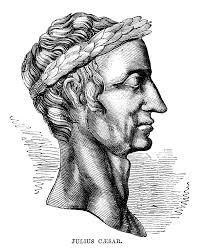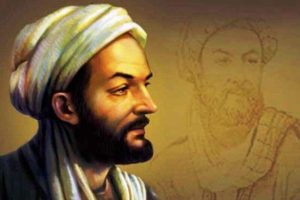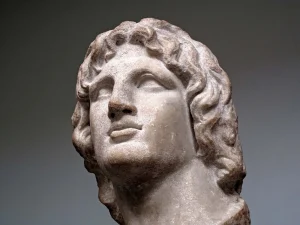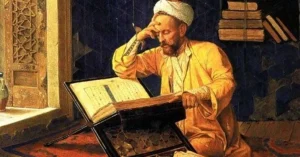
Julius Caesar
Dictatorship and Reforms
Caesar’s power grew, leading him to cross the Rubicon River in 49 BCE, an act of defiance against the Senate, which ultimately led to a civil war.
After defeating Pompey’s forces, he returned to Rome and was declared dictator for life in 44 BCE, signaling the end of the Roman Republic.
He implemented significant reforms, including the Julian calendar, land redistribution for veterans, and a reorganization of the Roman government.
Julius Caesar’s charity and social work
Julius Caesar is often remembered for his military prowess, political leadership, and eventual rise to power in ancient Rome. However, he also demonstrated a commitment to charity and social service during his time as a public figure.
Public Games and Events: Caesar often used his wealth to sponsor lavish public games, including gladiatorial contests and chariot races, which were free for the public to attend. These events were intended not only to entertain but also to maintain public favor, particularly among the lower classes. By providing these spectacles, he contributed to the social fabric of Rome, offering the common people an opportunity for enjoyment and distraction.
Grain Dole and Welfare: One of Caesar’s most significant contributions to social service was his reform of the grain dole, a program that provided free or subsidized grain to the Roman citizens, particularly the poor. Under his leadership, the grain supply was managed more effectively to ensure that the population had access to affordable food. This was essential in a city as large as Rome, where famine and unrest could arise quickly.
Debt Relief: Caesar was known for his populist policies, which included measures aimed at relieving the burden of debt for the common people. At various points, he passed laws that allowed for the cancellation of debts and the restructuring of loans, which helped alleviate the financial pressure on Roman citizens who had fallen into hardship.
Public Works and Infrastructure: As consul, Julius Caesar initiated a number of public works projects that not only beautified Rome but also improved its infrastructure. These included the construction of new temples, roads, and public buildings. These efforts created jobs for the Roman people and helped improve the urban landscape, making the city more accessible and functional.
Land Reforms: Caesar also addressed issues of land distribution. Many Roman citizens, especially veterans returning from campaigns, had been displaced from their land or had lost it due to economic difficulties. In response, Caesar initiated land redistribution programs to give land back to those who had fought for Rome. This was seen as a way to both reward soldiers and ensure a more stable society by reducing the growing divide between the rich and the poor.
Julius Caesar’s legacy
Julius Caesar’s legacy is monumental, influencing not just ancient Rome but also shaping the course of Western history for centuries. He was a military genius, a politician, and a key figure in the transition from the Roman Republic to the Roman Empire. His legacy can be explored in several key areas:
Military and Political Achievements
Conquests and Expansion: Caesar’s military campaigns, particularly his conquest of Gaul (modern-day France), greatly expanded the Roman Empire. His victories brought wealth and resources to Rome, making him a celebrated hero. This expansion helped cement his power and influence, as well as that of Rome on the global stage.
Crossing the Rubicon: In 49 BCE, Caesar’s decision to cross the Rubicon River with his army marked the start of a civil war in Rome. His bold move, “The die is cast,” signified his break from the Roman Senate, highlighting his willingness to challenge the authority of traditional institutions. This event led to Caesar becoming the dictator of Rome, fundamentally altering its political structure.
Reforms and Governance
Reorganization of Roman Government: Caesar initiated several reforms, such as restructuring the Roman calendar (the Julian calendar), which became the standard for much of the Western world until the modern Gregorian calendar was adopted. He also implemented social and economic reforms, including land redistribution, debt relief, and the reorganization of the Senate.
Dictatorship: Caesar’s assumption of the role of dictator was unprecedented. His concentration of power marked the end of the Roman Republic’s traditional checks and balances, paving the way for the rise of the Roman Empire. His reign, though brief, altered the governance of Rome and established the groundwork for future emperors.
Cultural and Legacy Influence
Literary Contributions: Caesar was not just a soldier and politician; he was also an accomplished writer. His commentaries, such as Commentarii de Bello Gallico (Commentaries on the Gallic War), not only documented his military campaigns but also helped immortalize his legacy. These works have been studied for their insight into leadership, strategy, and Roman culture.
Caesar as a Symbol of Power: Following his assassination in 44 BCE, Julius Caesar was deified. His legacy continued through his adopted heir, Augustus, who became the first Roman emperor. Caesar’s name itself became a symbol of imperial authority, influencing titles like “Caesar” and “Kaiser” (used by German emperors).







